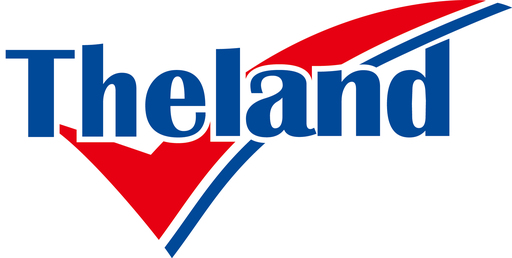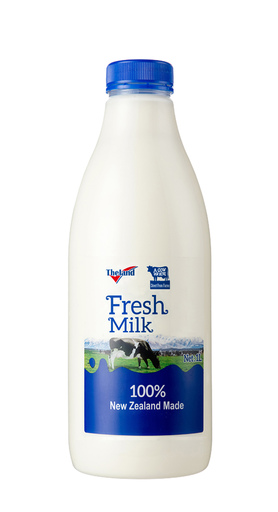
AQ Assured by AsureQuality, New Zealand's Government-owned food assurance company.
Theland Fresh Milk
1 Litre
PRODUCT ATTRIBUTES VERIFIED BY AQ ASSURED
- No added colours
- No artificial flavours
- No preservatives
- New Zealand made
- No added sugar
Version 1
 Origin
Origin
This product is 100% New Zealand made.
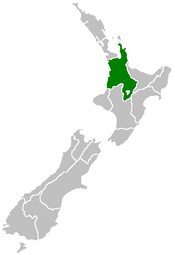
The milk is sourced from the pasture farmed, free ranging cows ( average of 2-3 cows per hectare ), situated in the Waikato Region of New Zealand.
Milking
Milking season in New Zealand begins from August and runs through to the end of the next May. Cows are typically milked twice per day from September to January, and once per day for the remainder of the season. There are selected farms where winter milk is collected in June and July.
The farms supplying fresh milk are organised to ensure 12 months continuous supply of milk, so the factory can deliver pasteurised milk daily.
TheLand Supply Chain
Click into any part of the supply chain to view the verified activities and assurances at each step.
The Farm
Farm Assurances
- All milk supply farms have a Ministry for Primary Industries (MPI) audited Risk Management Programme (RMP) to ensure quality of milk is maintained.
- Health checks and tests are regularly undertaken on cows and their milk.
- Any infected or unhealthy animals are separated from the herd and their milk is withheld until the animal is healthy.
- Water that comes into contact with the milking process is tested at an accredited laboratory to ensure safety and quality.
- Milk is tested for harmful bacteria, chemical residues and contaminants at a recognised laboratory.
- Milk is cooled immediately to 4-7 degrees Celsius and stored on the farm for less than a day to keep it fresh.
- Milk is picked up daily from the farm using refrigerated tanker trucks and transported to the dairy factory.
- All tankers have an automatic computer-controlled milk sampling system on board.

Milk is not accepted by the dairy factory if the temperature, colour or flavour is not to the required specification.
The Factory
Milk is transported from farms to the processing factory which is situated in the Waikato Region of the North Island of New Zealand.
The milk processing facility is registered for a Risk Management Programme as required by the Animal Products Act, 1999.
The factory is registered with the New Zealand Ministry for Primary Industries (MPI) and Certification and Accreditation Administration of the People's Republic of China (CNCA)
Factory Assurances
- Samples of milk are taken upon arrival at the factory and tested before the tanker is emptied.
- Samples are taken and tested during processing to ensure the milk product is of the highest standard.
- Factory processes are regularly independently audited to ensure Risk Management Plan (RMP) requirements are being maintained.
- All product units are individually coded with the date, time, line number, and jaw number for traceability.
- The final product is tested at an accredited laboratory to ensure that it meets the requirements of both the NZFSA (New Zealand Food Safety Authourity) and the China Food Safety Standards (GB Standards, the National Food Safety Standard for the People's Republic of China) for chemical, microbial, sensory and packaging.
Once all laboratory tests are completed and passed, New Zealand's Ministry for Primary Industries issues a health certificate, making it eligible for export;
 The fresh bottled milk is loaded into pallets that are individually stretch wrapped and have pallet barcodes attached front and back for traceability.
The fresh bottled milk is loaded into pallets that are individually stretch wrapped and have pallet barcodes attached front and back for traceability.
Transport
Transport Assurances
The transport company that makes this delivery must have a current New Zealand Ministry for Primary Industries (MPI) Risk Management Plan (RMP) before it can freight any dairy products, as per the Animal Products Act, 1999.
The transport company is audited regularly by accredited personnel to ensure that standards are being met and maintained.
The approved airline company receives the products at the airport and prepares the shipment.
Air Freight
New Zealand and China have a bilateral free trade agreement (FTA) signed between the People’s Republic of China and New Zealand in 2008, the first free trade agreement that China has signed with any developed country.
The shipping company must ensure that the products are accompanied by all EAD (export accompanied documents) that is required by the importing country, including:
• A NZ-China FTA Certificate of Origin, which is designed to give Assurance to China Customs that the product is produced in New Zealand and complies with the FTA with China.
• Customs documents
• Health Certificates (are issued by the NZ Ministry of Primary Industries, to ensure the product complies with both the NZ Food Regulations and Chinese Government Requirements)
• Certificates of Analysis (contain actual laboratory results from chemical, microbial and physical tests)
• Any other documentation required by the importing country must be completed and approved before it can be loaded on-board (this includes import permits and registration with the General Administration of the Peoples Republic of China for Quality Supervision, Inspection and Quarantine AQSIQ)
The product is checked by China Customs on arrival. China Customs check the import documentation to confirm all requirements have been met and may test the product again prior to releasing it into the country.

Once cleared, the product is sent to the distribution chilled warehouse using refrigerated trucks.
Retail
The products arrive at the chilled warehouse, where they are managed using barcoding and traceability systems.
No product leaves the warehouse until it receives a final quality check.
Product is loaded into chilled delivery trucks and distributed to individual shops, supermarkets and other customers.
Retailers ensure that the product is fresh by using good stock rotation, and checking best before dates before selling product to consumers.
The AQ Assured™ brand and QR code are available for consumers to scan in order to be sure of the safety and quality measures undertaken throughout the product supply chain.
 Environmental
Environmental
The farms where the milk is sourced from are obligated to comply with the environmental regulations prescribed by New Zealand's Regional Councils.
Theland Fresh Milk is produced in compliance with New Zealand's Resource Management Act (2009), and local council Resource Management Plans, which set out rules and regulations around management of the New Zealand environment.
These rules include:
• Disposing of waste in ways that prevent pollution
• Controlling manufacturing emissions to ensure air quality is maintained
• Using only approved chemicals in a way that will not harm the environment
• Operating within a safe distance of waterways to avoid erosion and protect water quality
• Nutrient management
 Social & Ethical
Social & Ethical
Animal Welfare
All milk suppliers for Theland products are obligated to meet the New Zealand Animal Welfare Standards .
The standards require animals to be allowed the following five freedoms;- Freedom to display normal patterns of behaviour
- Freedom from thermal and physical discomfort
- Freedom from thirst, hunger and malnutrition
- Freedom from distress
- Freedom from, or rapid treatment of, illness or injury
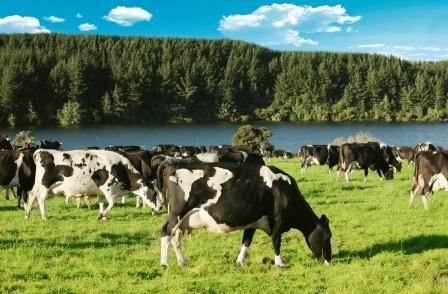
 Safety & Quality
Safety & Quality
Laboratory Tested for Safety & Quality
Laboratory Tested for Safety & Quality Theland Fresh Pasteurised Milk products are laboratory tested for safety throughout the production process at independent and accredited laboratories.
Testing is undertaken at each step from raw milk collection, during processing, and again upon completion of the final product.
This testing regime also ensures the final products meet the nutritional descriptions on their label. Samples are tested for bacteria or other contaminants, including antibiotics.
New Zealand has Acts and Regulations to ensure all dairy products produced are safe for consumers and that manufacturers use fair and sustainable practices. All dairy products must comply with the Animal Products Act, 1999 and all milk suppliers must meet the New Zealand Animal Welfare standards.
These regulations include:
• No hormones or growth promotants are permitted
• All food safety hazards must be controlled using Codex based Hazard Analysis Critical Control Point (HACCP) principles
• All chemicals used on a manufacturing site must be approved by the New Zealand Government’s Ministry for Primary Industries
• Hygiene standards for facilities, equipment and people must be met
• That all producers, manufacturers, transporters, packing and storage facilities operate a Risk Management Programme
Meets Overseas Market Access Requirements (OMAR)
Theland Fresh Pasteurised Milk meets the market access requirements of the countries to which it exports.
Auditing
Milk processing factory environment, processes and records are routinely audited in order to uphold their Risk Management Programme (RMP) and Hazard Analysis & Critical Control Points (HACCP).
There are also unannounced regulatory audits conducted randomly to ensure compliance.
 Nutrition
Nutrition
Raw New Zealand Milk
The 100% raw milk sourced from New Zealand is standardised according to CODEX regulations.
Theland Fresh Pasteurised Milk contains no colouring agents, sweeteners, thickening agents, gelatine, or preservatives.
There are no antibiotics, pesticides, chemicals or heavy metals involved in the production of this milk.
Product testing at an independent accredited laboratory confirms compliance.
This product contains 100% natural protein. Protein is important for the growth and repair of the body’s cells and for building muscle.
This product contains 100% natural milk calcium. Calcium plays an essential role in the development of healthy bones and teeth.
